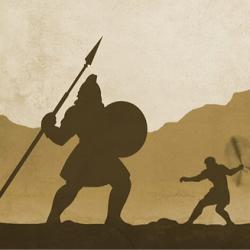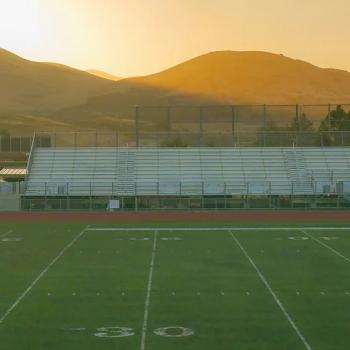When Is It Time to Draw A Line and Take a Risk For Living Your Faith At Work? (Good Liabilities at Work Part 2)
When or where do we draw the line when faced with workplace challenges to faith values? Some of us embrace a guns blazing approach, others stay silent. We hear of examples in the press and from friends where it seems that individuals were unjustly terminated or penalized for living their faith at work. Some of these stories are certainly true. Some are using faith as a cover for poor performance. And some are possibly a mixture. So what do we do, where do we turn for wisdom on navigating this challenge?
The Biblical character of Daniel provides us with a helpful model for thriving in a spiritually hostile context. I urge readers to ponder his story in chapters 1 through 6 of the book that bears his name. You can listen to a more detailed examination of Daniel’s context and his approach to speaking truth to power here: https://itunes.apple.com/us/podcast/daniel-part-2-speaking-truth/id370932928?i=349193413&mt=2.
In this post, we count Daniel’s model as God’s wisdom for when and when not to draw the line.
Daniel’s Situation, The Vulnerability of an Exile. Daniel’s home country of Judah was captured and destroyed by the Babylonian Empire. His parents were likely killed. Because he was good looking and talented, he was carted off to Babylon, the capital of the empire and trained in the language and ways of the Babylonians. He was an outsider forcedly immersed in the center of a spiritually hostile culture.
Our Situation: My friends at Redeemer Presbyterian Church here in Manhattan, are fond of reminding us that Christians are not in power, we are not in a mode of cultural dominance. (They compare cultural dominance to the era’s when Israel was integrated, militarily victorious, and comfortable in Jerusalem her capitol.) Whatever maybe argued about the Christian nature of our history in the United States, much of our political and daily life is decidedly secular. Believers need to take the exilic approach not the “in power” one.
Which leads us to Daniel’s foundation—two critical things were true about him which made his line-drawing credible.
Daniel’s Foundation, Excellence and Integrity. Daniel was known for being exceptionally excellent for his work (Daniel 1:17-19) and he was known for squeaky-clean integrity (Daniel 6:6). Daniel lived a singular life (integrated), where his faith shaped his choices on a day-to-day basis, and his faith and faith-filled friends were the resource he drew upon for workplace challenges (see Daniel 2). He was not a sloppy, careless, self-serving, late, dishonest, or an otherwise troublesome presence at work. Daniel was worth listening to.
Prerequisites for Us: When a poor performing employee suddenly appoints themselves as the spiritual conscience for the team, it will not end well. There may be many injustices and moral problems among others in our workplace—as I’m sure there were in the halls of the Babylonian Palace. But until one has established a track record of integrity and excellence, one’s focus should be on getting oneself in line, not drawing a line for others.
Daniel’s Lines, Only Two
- When asked: Sometimes Daniel was asked to speak to the king about the significance of an event or vision. What is note worthy is that Daniel did not initiate confronting the king, he only did so when asked (See Daniel 2, 4 & 5)
- When forced: Sometimes Daniel and his friends were forced to draw a line (Chapters 1, 3 & 6). In these scenarios, they were being asked to do something that violated their allegiance to God. Even when they did draw a line, when they said no, they did so with a quiet and respectful, event-sensitive demeanor. They were not angry cultural warriors.
Application: So when asked where we stand on various issues, we need a gentle, graceful, yet truthful, response. And when forced by policy or peer pressure towards behaviors that violate our allegiance to Christ, we must graciously say no. But what about societal, institutional, or judicial processes that do not align with biblical principles: Daniel and company don’t seem to aggressively go after broader systemic challenges. Perhaps this question is fodder for a future post.
How About You:
Do you have the track record of integrity and excellence to be respected for dropping a “no” on a company of industry practice?
What does it look like for you to have the character, courage, and clarity to draw the right line at the right time?
_________
Picture: https://pixabay.com/p-782755/?no_redirect, License: https://pixabay.com/en/service/terms/













